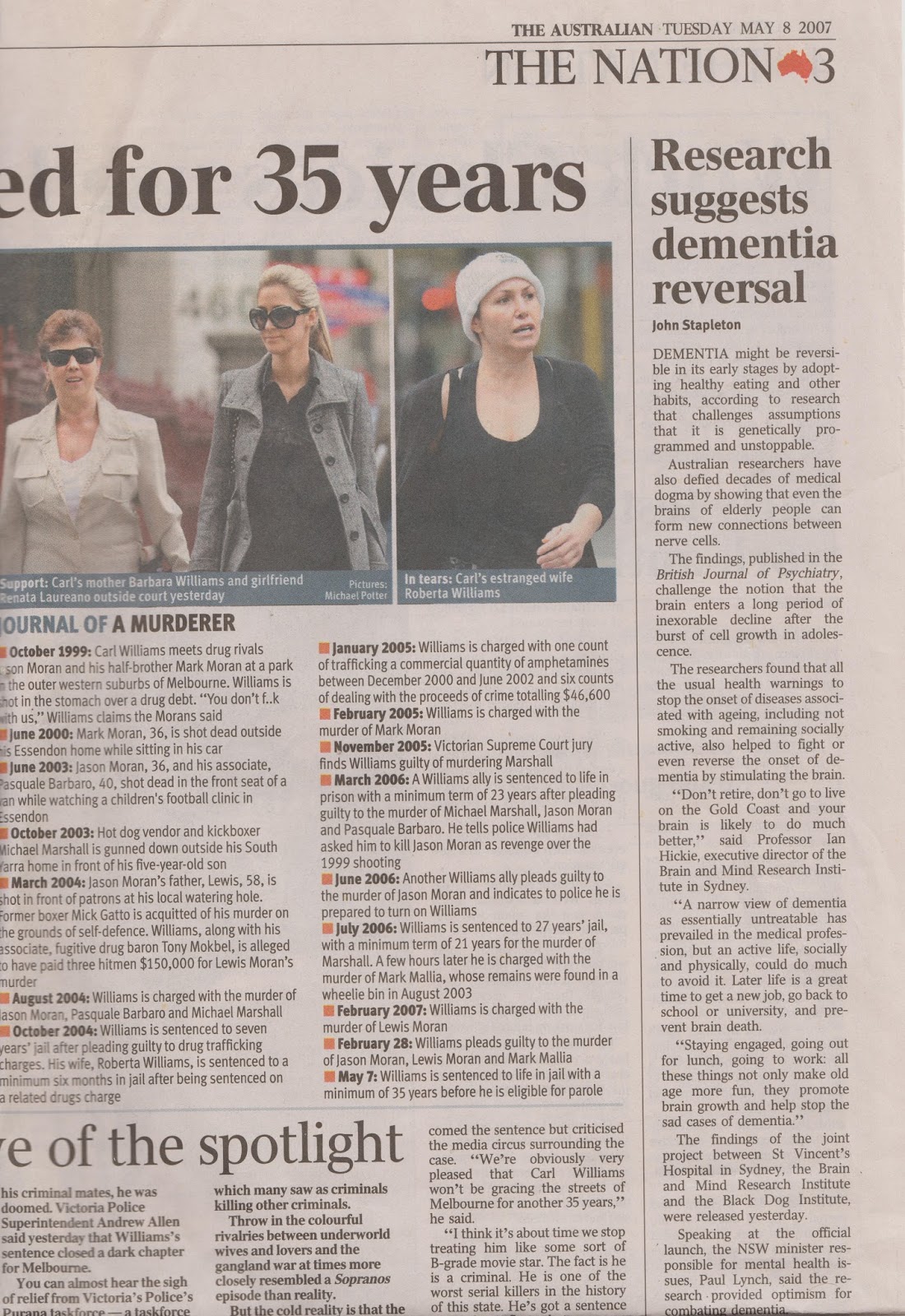Stapleton, John. The Australian [Canberra, A.C.T] 08 May 2007: 3.
Show highlighting
Abstract
“Don’t retire, don’t go to live on the Gold Coast and your brain is likely to do much better,” said Professor Ian Hickie, executive director of the Brain and Mind Research Institute in Sydney.
“This research suggests high blood pressure, smoking, diabetes, obesity, heart attack and stroke may impair the growth processes that can generate new brain cells and connections,” Mr [Paul Lynch] said.
“Recent evidence shows that healthy, ageing and impaired brains have a remarkable capacity to generate new brain cells and promote new connections,” Dr [David Burke] said.
DEMENTIA might be reversible in its early stages by adopting healthy eating and other habits, according to research that challenges assumptions that it is genetically programmed and unstoppable.
Australian researchers have also defied decades of medical dogma by showing that even the brains of elderly people can form new connections between nerve cells.
The findings, published in the British Journal of Psychiatry, challenge the notion that the brain enters a long period of inexorable decline after the burst of cell growth in adolescence.
The researchers found that all the usual health warnings to stop the onset of diseases associated with ageing, including not smoking and remaining socially active, also helped to fight or even reverse the onset of dementia by stimulating the brain.
“Don’t retire, don’t go to live on the Gold Coast and your brain is likely to do much better,” said Professor Ian Hickie, executive director of the Brain and Mind Research Institute in Sydney.
“A narrow view of dementia as essentially untreatable has prevailed in the medical profession, but an active life, socially and physically, could do much to avoid it. Later life is a great time to get a new job, go back to school or university, and prevent brain death.
“Staying engaged, going out for lunch, going to work: all these things not only make old age more fun, they promote brain growth and help stop the sad cases of dementia.”
The findings of the joint project between St Vincent’s Hospital in Sydney, the Brain and Mind Research Institute and the Black Dog Institute, were released yesterday.
Speaking at the official launch, the NSW minister responsible for mental health issues, Paul Lynch, said the research provided optimism for combating dementia.
“This research suggests high blood pressure, smoking, diabetes, obesity, heart attack and stroke may impair the growth processes that can generate new brain cells and connections,” Mr Lynch said.
“Like all organs of the body, growth processes in the brain are dependent on blood supply. It is a compelling reason for people to take seriously the benefits of exercise and a healthy diet.”
Lead author of the study, David Burke, an expert in old-age psychiatry from St Vincent’s Hospital, said 5 per cent of the population aged more than 65 had varying degrees of dementia, and this increased to 20 per cent for those 85 or more.
He said that as well as a healthy lifestyle, dietary supplements to assist brain function, including fish oils, B12, Vitamin E and folate, could also assist in fighting off dementia.
“Recent evidence shows that healthy, ageing and impaired brains have a remarkable capacity to generate new brain cells and promote new connections,” Dr Burke said.
“Even for people with full-blown dementia, we suggest regular exercise and social interaction can turn it around.”

